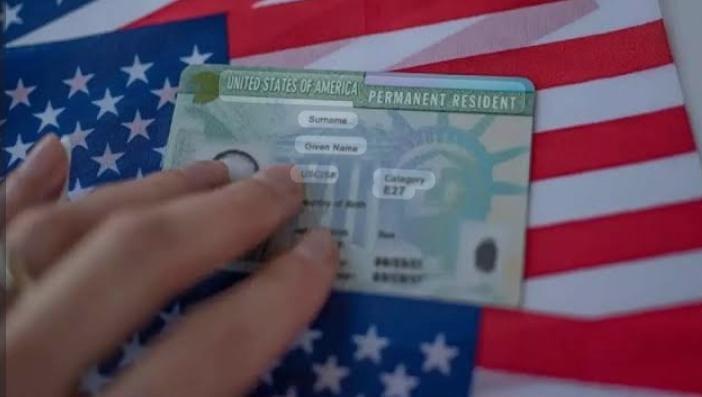How Parole in Place Helps Undocumented Spouses of U.S. Military Members

For undocumented spouses of U.S. military members, navigating the complex and often intimidating immigration system can feel overwhelming. One key legal relief that offers hope and stability to many in this situation is Parole in Place (PIP).
This policy allows eligible undocumented family members of active-duty military personnel, reservists, veterans, and certain other military-affiliated individuals to remain in the United States legally without having to leave the country for consular processing.
How Parole in Place Helps Undocumented Spouses of U.S. Military Members
Understanding the process, including how to file a parole-in-place application, and the benefits of PIP can be a lifeline for families who serve and sacrifice alongside their loved ones.
What is Parole in Place?
Parole in Place is a discretionary immigration policy administered by the U.S. Citizenship and Immigration Services (USCIS). It grants temporary lawful status to certain undocumented individuals who are immediate family members of U.S. military personnel. Unlike parole granted for humanitarian or urgent reasons, PIP specifically targets military families, allowing spouses, parents, and children of military members to remain in the U.S. without fear of deportation while they pursue lawful permanent residence (a green card).
Historically, undocumented military spouses who wished to adjust their status to lawful permanent residents faced the significant hurdle of leaving the U.S. to attend visa interviews abroad, risking lengthy separation from their families and exposure to potential denial or bars to re-entry. Parole in Place removes this barrier by authorizing these individuals to stay in the U.S. during their adjustment process, reflecting the government’s recognition of the unique sacrifices made by military families.
Who Qualifies for Parole in Place?
To be eligible for PIP, the applicant must be an immediate relative (spouse, parent, or child) of:
-
An active-duty member of the U.S. Armed Forces (including National Guard and Reserves),
-
A veteran who was honorably discharged,
-
Or certain other military affiliates, such as the spouse of a deceased service member who died on active duty.
It is important to note that the individual applying for parole must already be physically present in the United States. Additionally, they must not be subject to any serious criminal or security-related inadmissibility grounds.
The Parole-in-Place-Application Process
Applying for Parole in Place involves filing Form I-131, Application for Travel Document, with USCIS. This form, when filed under the PIP program, serves as a request for parole rather than for travel outside the country. The applicant must provide evidence of their qualifying military relationship, such as marriage certificates or military service records, along with proof of physical presence and identity.
Military members or veterans often write letters of support or command endorsements to accompany the application, highlighting the service member’s active duty status and the hardship that denial of parole would cause to the family. This additional documentation can be influential in persuading USCIS to approve the application.
Processing times for parole-in-place applications vary but typically take several months. Once approved, parole is granted for one year but can be renewed or extended. Importantly, parole does not confer lawful permanent resident status by itself, but it can clear the way for applicants to file Form I-485, Application to Register Permanent Residence or Adjust Status, without leaving the U.S.
Benefits of Parole in Place for Undocumented Military Spouses
-
Avoids Separation and Travel Risks: Before PIP, undocumented military spouses often had to leave the U.S. for visa interviews, risking denial or long delays that could separate them from their spouses. PIP allows them to stay with their families throughout the process.
-
Provides Temporary Legal Status: While parole does not grant a green card, it provides temporary lawful status and protection from deportation, which is critical during the adjustment of status process.
-
Enables Work Authorization: After parole is granted, applicants can apply for employment authorization, allowing them to work legally in the U.S. while waiting for their permanent residency.
-
Acknowledges Military Service and Sacrifice: PIP is a recognition by the government of the unique sacrifices military families endure. By offering this relief, the policy supports the morale and stability of service members by ensuring their families are protected.
-
Facilitates Adjustment of Status: Parole in Place helps applicants qualify to adjust status within the U.S., which can be a simpler and safer path to permanent residency compared to consular processing abroad.
Challenges and Considerations
Although PIP is a powerful tool, it is not a guaranteed right; it remains a discretionary benefit subject to USCIS approval. Applicants with significant criminal histories or those who pose a security risk may be denied parole. Furthermore, parole in place does not provide a direct path to citizenship — it merely allows eligible family members to remain in the U.S. lawfully while pursuing other immigration remedies.
Also, PIP applies only to certain close military family members and does not extend to other relatives or friends. Legal advice from an experienced immigration attorney can be invaluable in navigating the nuances of eligibility and ensuring a strong parole-in-place application.
Conclusion
Parole in Place stands as a compassionate and practical solution for undocumented spouses and family members of U.S. military personnel, recognizing the sacrifices made by those who serve. By allowing these individuals to stay legally in the U.S. without risking separation, PIP helps maintain family unity and supports the overall mission of the U.S. Armed Forces.
For undocumented spouses of military members, filing a parole-in-place application can be the first step toward lawful residency and greater peace of mind. As immigration policies evolve, PIP remains a critical lifeline and symbol of gratitude for the dedication of military families.
- Art
- Causes
- Crafts
- Dance
- Drinks
- Film
- Fitness
- Food
- Jogos
- Gardening
- Health
- Início
- Literature
- Music
- Networking
- Outro
- Party
- Religion
- Shopping
- Sports
- Theater
- Wellness
- IT, Cloud, Software and Technology


